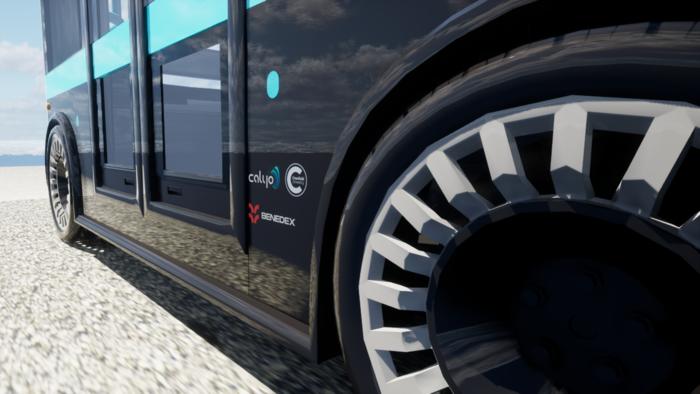Calyo, Benedex Robotics and Cranfield University have joined forces to improve safety in self-driving vehicles.

Credit: Cranfield University
Calyo, Benedex Robotics and Cranfield University have joined forces to improve safety in self-driving vehicles.
The new partnership, part of the DRIVEN BY SOUND project led by Calyo, will develop a functional safety sensing platform based on 3D ultrasound, capable of operating effectively in even the most challenging environmental conditions.
The new technology allows autonomous vehicles to detect their surroundings in 3D in real time. It complements existing sensing and safety detection systems, providing an additional layer of safety and reliability.
The platform will be available to Tier 1 companies, automotive manufacturers, and start-up mobility ventures as a reliable and functional safety module. It serves as a crucial redundancy mechanism, enabling vehicles to perform minimum risk manoeuvres (MRMs) and safely stop in the event of a fault or severe road conditions.
Mihai Caleap, CEO of Calyo, said: “Our partnership is delivering a robust, redundant sensing platform based on 3D ultrasound for automotive Advanced Driver Assistance Systems (ADAS) and autonomous driving. The technology will be applicable across vehicle platforms, including off-road industrial applications.”
Snir Benedek, CEO of Benedex Robotics, added: “By integrating this additional layer of functional safety we are introducing innovation, which is transformative in the industry, while cost-effective and easy to implement, establishing the foundation for accessible safe and secure autonomous mobility.”
The collaboration combines Calyo’s 3D ultrasound sensor technology, Calyo PulseTM, Benedex’s safety platform expertise, and Cranfield University’s experience in integrating and testing autonomous road vehicles. The end product will provide a crucial redundancy mechanism for enhanced safety in autonomous vehicles.
Marco Cecotti, Lecturer in Driving Automation at Cranfield University, said: “Safety has to be top of the agenda for autonomous vehicle development, and this exciting project will inform a robust solution to deal with extreme environmental conditions, one of the biggest technical challenges to the widespread availability of self-driving vehicles.”
The project is expected to be completed in the first half of 2025, culminating in the demonstration of a vehicle prototype equipped with this technology at Cranfield University’s Multi User Environment for Autonomous Vehicle Innovation (MUEAVI) proving ground.
ENDS
Subject of Research
Not applicable



